Streamlining Administration in Shenzhen
Mr. Siping Zhang, former member of the Standing Committee of the CPC Shenzhen Municipal Committee, was invited to the China Reform Forum in December to make a speech on streamline the administration. Shenzhen has issued two documents to streamline administration in 2015 and 2016. Zhang went through the 89 reduced administrative functions. He points out that among the 89 functions, 14 of them merged into one another, and 18 of them have always been void. Not even half of them are procedures with actual effectiveness.
Figure 1 Categories in the Examination and Approval system
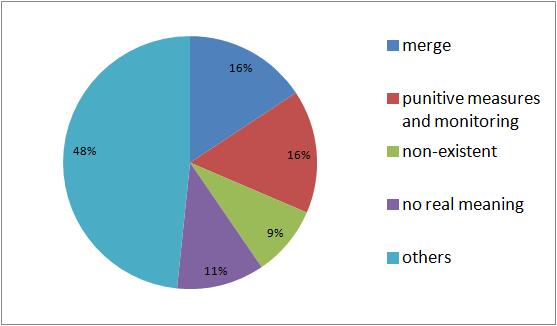
It is the core of deepening the reform of the administrative system and the reform of the economic system. Since the 18th congress of the Communist Party of China, the Party Central Committee and the State Council have made administrative streamlining as the ‘first-hand chess’ for the comprehensive deepening reform and the ‘pawn gun’ for transforming the government function. A series of reform measures have been taken to stimulate market vitality and social creativity, to improve government's governance capacity, to promote stable growth, to adjust structure and to benefit the people.
In 1997, Shenzhen took the lead in the reform of the examination and approval system, and the transformation function of the government. The last two decades have witnessed the reform of the seven rounds of examination and approval system. Especially since the 18th Party Congress, , Shenzhen has done a lot of work in deepening the reform of the examination and approval system, transforming the government functions and so on, in order to maintain its economic growth and structural optimization in the context of the national economy.
However, it is a difficult and complicated long-term task to change the government function. In fact, it is a revolution of the government itself. It involves many deep-rooted contradictions, and vested power and interests. It requires fundamental changes in the way of government administration. The ongoing administrative streamlining reform in Shenzhen is in a stalemate, lagging behind in the strength, depth and width in scope and implementation required by the State Council. Therefore, Shenzhen should take the lead in this time’s examination and approval system reform and continue to generate leading reform experiences for the rest of the country.
Upon the request from then Party Secretary of Shenzhen Mr. MA Xingrui, the SZIDI launched this project to evaluate the recent administrative streamlining reform, involving administrative licensing, non-administrative licensing, government services provided at the service hall, government and social investment approval, pre-registration and post-approval of business activities, fees from government funds and government pricing, as well as industrial capitals. Based on the evaluation of thousands of items involved in the examination and approval system, we aim to provide a comprehensive and systematic evaluation and offer policy recommendations.
Zhang proposes ten principles on streamlining administration in Shenzhen:
-In accordance with Premier Li’s speech, we should abolish administrative procedures and approval for areas other than those involving public interests such as national security, ecological security, and public health
-government should retreat from economic activities and be confined to sectors responsible for public goods provision; it should only guide and adjust economic activity through planning, industrial policies and necessary economic surveillance; government should fully respect the role of market in distributing resources
-Even with sectors that are responsible for public goods provision, government should leave more autonomy to citizens, legal person and other organizations who can make their own decisions and bear the risk accordingly; administrative approval should be abandoned in this sense
-administrative approvals should be abolished in economic activities that already require ex post approval and evaluation
-government should treat enterprises with all sorts of ownerships equally; private and foreign entities operating in the same industry as SOEs should enjoy same administrative conveniences
-in accordance with the requirements from the State Council, we should abandon administrative procedures and approvals for non-administrative activities
-government should retreat from conferring professional certificates and qualifications that can be conferred by relevant industry association, NGOs and professional organizations
-for economic activities that have already received approval from national government or provincial government and that are undertaken by independent enterprises do not need administrative approval from municipal government in the primary stage
-economic and social activities that require final approval from relevant governmental departments do not need administrative approvals from coordinating departments
-with the help of information sharing system, only relevant departments that have the final say should keep the record of any proposed economic and social activities; other departments can always refer to them if needed
Figure 2 Reform of administrative approval
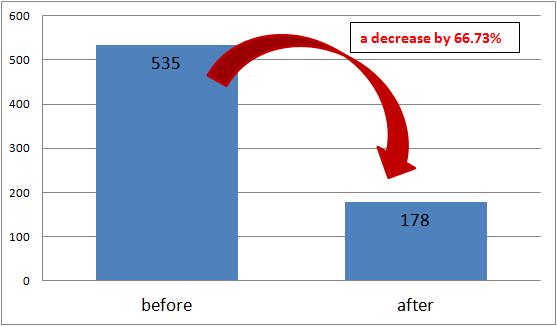
There is to be a cut of 152 items in non-administrative approval, a decrease of 79.58%.
Figure 3 Reform of non-administrative approval
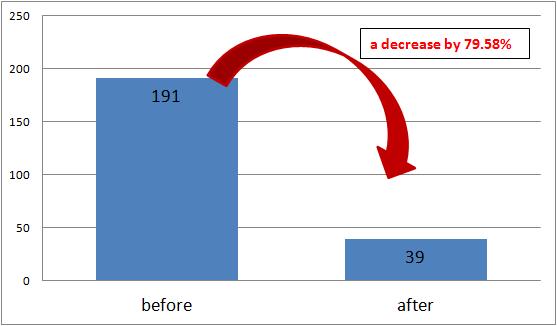
After the reform, government services provided at the service hall will see a reduction of 461 items.
Figure 4 Reform of government services provided at the service hall
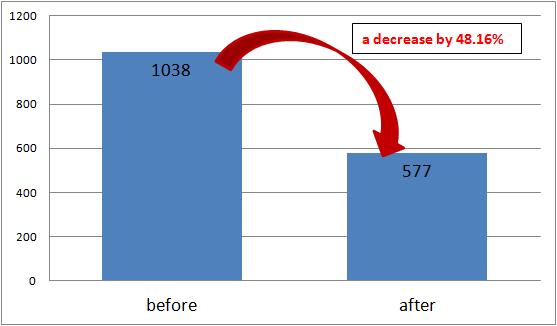
The government investment approval will only require 5 steps, 9 departments, 13 procedures, which will only take 179 work days instead of 400 work days in the past.
Figure 5 Reform of government investment approval
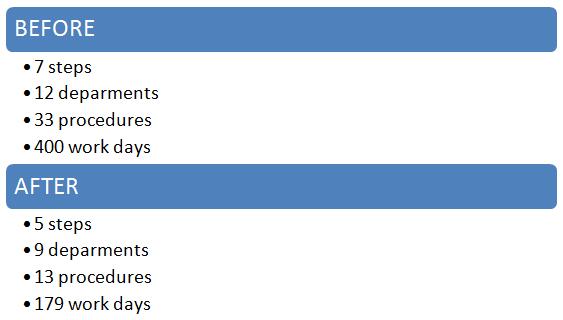
The social investment approval will only require 4 steps, 9 departments, 18 procedures, which will only take 30 work days instead of 196 work days in the past.
Figure 6 Reform of social investment approval
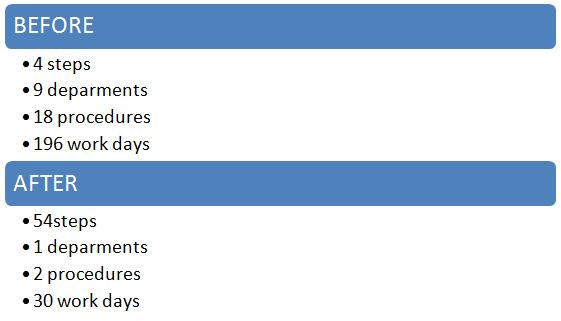
4 items in pre-registration of business activities should be called off while leaving 8 of them required for administrative approval for financial institutions.
Figure 7 Reform of pre-registration of business activities
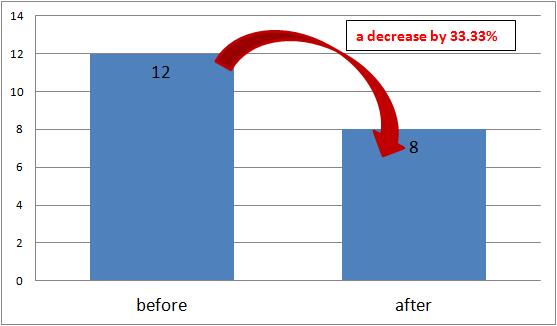
Post approval should be reduced from 117 to 90 items.
Figure 8 Reform of post approval of business activities
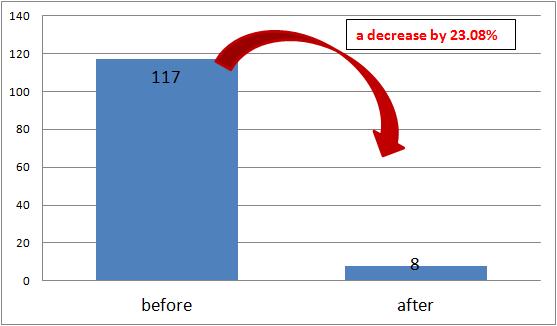
The administrative streamlining reform has three main challenges
● for fear of a shrink of power, officials are not willing to commit
● for fear of accusations, officials dare not to reform
● lack of relevant laws and regulations, officials do not know how
Therefore, Zhang suggests that all levels of government should fully implement the requirements from the 19th NPC Report that requires to change government functions, deepen administrative streamlining reform, innovate the form of monitoring, increase government credibility and enforcement ability, and to build a service-oriented government that people are satisfied with. Administrative streamlining reform should continue to be the main mechanism of administrative reform.


